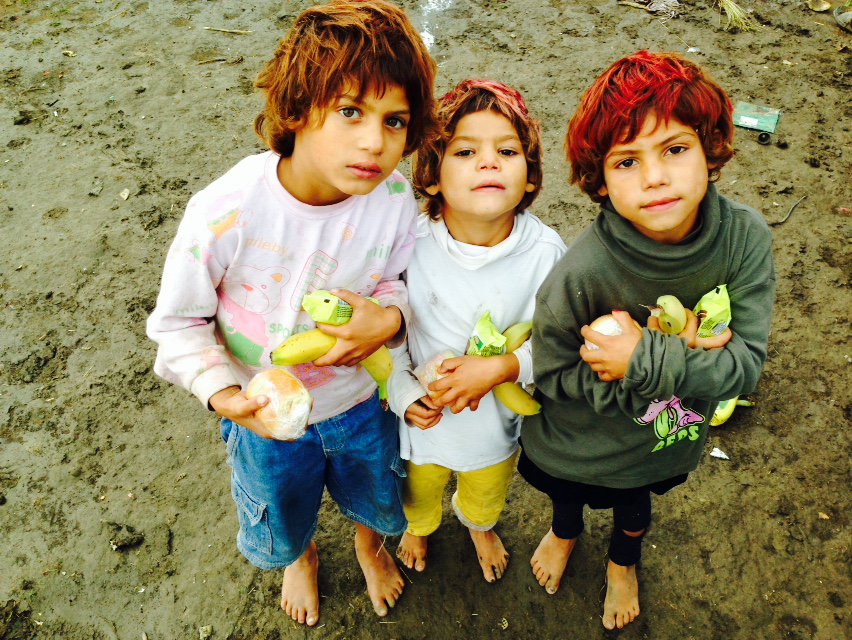Forced Evictions and Shattered Lives
22 October 2014
As various reports indicate, thousands of Roma face evictions in Romania. Under the pretext of urban regeneration or development, entire communities are swept away in forced evictions and house demolitions. The lack of documentation proving ownership is the legal reason most often cited by the authorities to justify such actions. That is the reason communities were evicted in two cases currently being monitored by the European Roma Rights Centre: one in Pata-Rat (Cluj-Napoca) and another in Eforie Sud (Constanta).

I recently visited the Roma families who had been evicted in September 2013 and their homes subsequently demolished in Eforie Sud, Constanta. On that date, approximately 101 Romani persons, including 55 children were left homeless, in severe weather conditions. For four days they had to endure heavy rain and bitter cold.
The media attention generated by this case finally pushed the authorities to accommodate those evicted. While some may have been led to suppose that the authorities acted with good intentions, a close look at the accommodation they provided quickly dispels any such illusions. The accommodation was an abandoned high-school in deplorable condition. The ceiling seemed about to collapse at any moment, there was no running water and no heating. The evicted families were crowded into two rooms, so about three generations were living in one room. In no way did the accommodation provided meet the minimum acceptable national and international standards on housing.
Those who had been evicted and placed in the abandoned high-school, lived there for about 10 months before being evicted for a second time on July 17, 2014. Those who had lived on Eforie Sud were moved by the local authorities to containers located next to a garbage dump, with no access to public transport, school or other basic amenities. Those who did not have residence were left without any option, but to leave the city or find shelter with relatives.
Three families refused to abandon their belongings and decided to stay in improvised tents at the place where the eviction took place. The improvised tents are located just a few meters away from the place where their houses were demolished last year. The ground where there used to be houses is overgrown with weeds. The local authorities have not done anything with the place. A few meters away, I could see three small tents and about 25 adults and children roaming around. I felt shocked to see the kids only lightly dressed and running barefoot on the cold ground around the tent.
I asked if any of the children go to school and the answer was “No”. Of course, living in such conditions would not allow anyone to be prepared every day for school. I received the same answer when I asked if anyone goes to kindergarten. When I started talking with the kids, I felt I was having a conversation with adults. Even the ones who were not more than two years old knew already the hardships of life and were aware of their situation. Their innocent faces showed confusion, desperation, helplessness, insecurity.
I started chatting with them and asked how their life is. They all answered that they feel very cold during the night and that when it’s raining, water comes down on them. It was surprising to see how mature they were when speaking and how desperate they felt. They showed me where they sleep during the night and where they cook outside the tent. The kids looked traumatized, the eviction and the life style they have led since the eviction has left a strong mark on their lives and it’s far from certain that this mark will ever disappear.
The evictions have irremediable consequences on the lives of those affected. Not only do they systematically and physically exclude those evicted from mainstream society, but evictions have a disastrous effect on children whose chances to go to school, to make a success of their lives and contribute in the future to the wider society are effectively reduced to zero.
It is a great pity that nearly three years after the adoption of the National Roma Integration Strategy the prospect for concrete change in the lives of the most vulnerable remains as remote as ever.
The psychological implications of eviction are disastrous not only for the children who can only look on helplessly as their lives are shattered, but also for their parents who suffer enormously for being treated little better than animals, like society’s pariahs. That’s why evictions should be only ever be a last resort, that local authorities should consider all the implications of an eviction very carefully, and pay careful attention to the vulnerability of children. Instead of evicting them, and taking from them the basic rights and opportunities to make something of their lives, it would be a far better thing in the 21st Century for local authorities to consult with the people and find a humane alternative to forced eviction.
Photo credit: ERRC.




